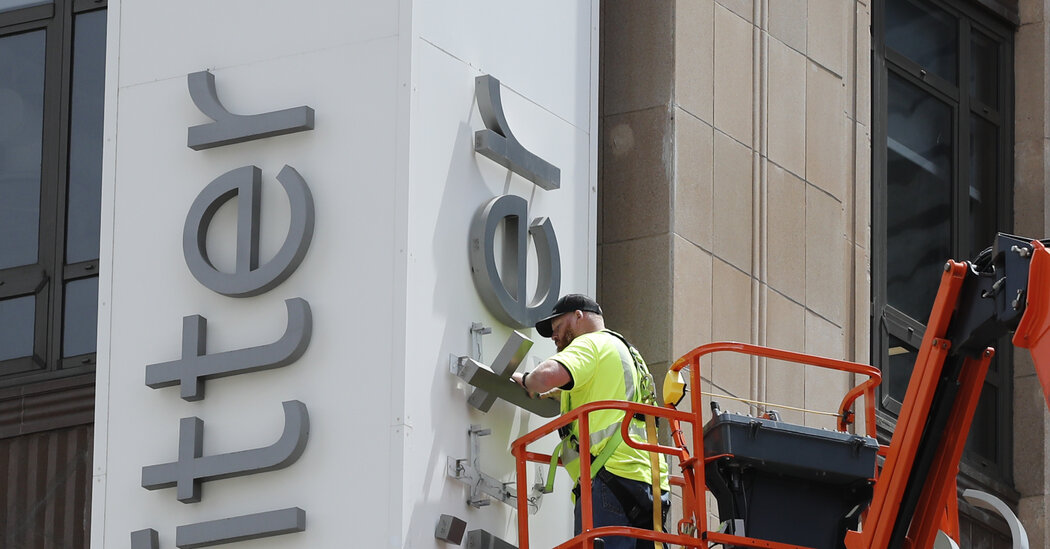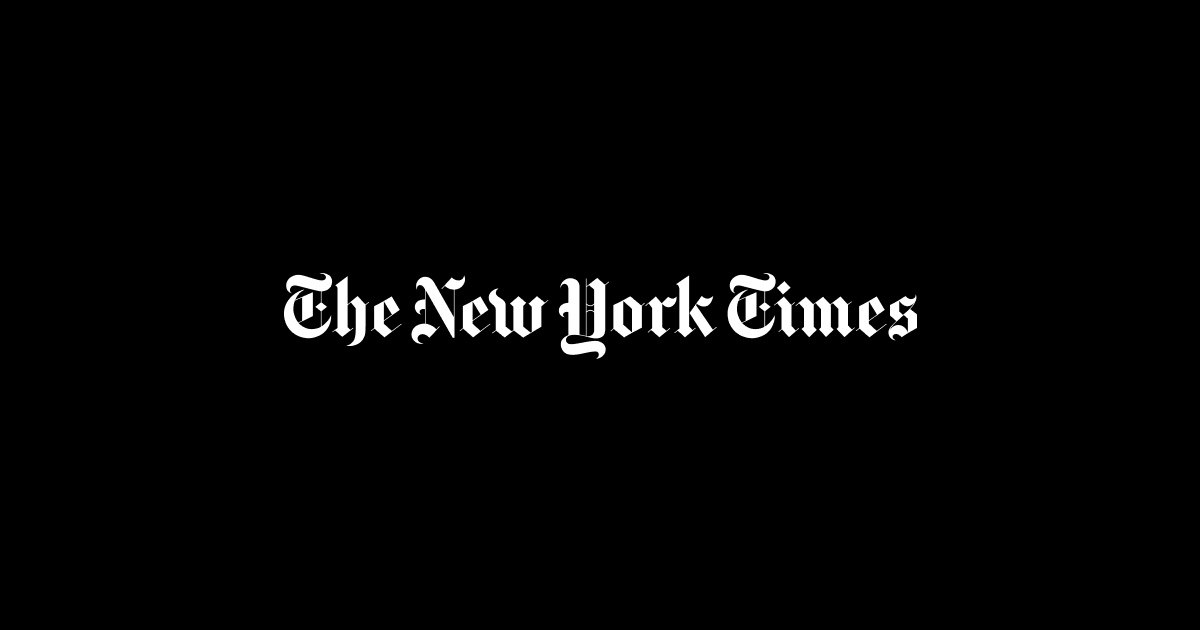BATTLE FOR THE BIRD: Jack Dorsey, Elon Musk, and the $44 Billion Fight for Twitter’s Soul, by Kurt Wagner
EXTREMELY HARDCORE: Inside Elon Musk’s Twitter, by Zoë Schiffer
This March, the social media platform formerly known as Twitter will turn 18 — a grown-up in human years, even as the site seems to be stuck in a crude adolescence. In the opening pages of “Battle for the Bird,” the Bloomberg journalist Kurt Wagner recounts how Jack Dorsey, one of Twitter’s founders and its two-time chief executive., liked to issue high-flown pronouncements about fostering a “global consciousness.” Barely more than 200 pages later, Wagner describes how the billionaire entrepreneur Elon Musk, who acquired the platform in October 2022 and has since changed its name to X, insisted on personally addressing the complaints of a prolific poster known as @catturd2.
The arc from gauzy ideals to the litter box of reality has certainly been a weird one. “It didn’t have to be this way,” Wagner writes, in a book that traces the history of the platform through the first nine months of Musk’s tenure. Another new book, Zoë Schiffer’s “Extremely Hardcore,” peers more closely inside the company under Musk. Both authors convey how the platform has struggled to reconcile two imperatives: the techno-libertarian promotion of free speech and the techno-libertarian urge to make lots of money.
Wagner approaches Twitter as a business story, paying particular attention to Dorsey’s discomfort with the pressures of running a publicly traded company. Dorsey, who never responded to Wagner’s requests for interviews, comes across as someone who had grand (if vague) hopes for the platform but increasingly held himself at a remove — going on a 10-day silent retreat in Myanmar; sequestering himself on a resort in French Polynesia; suddenly announcing on Twitter, without first telling his staff, that he was planning to live half the year in Africa (an idea that was shelved by the pandemic).
Among a number of fateful decisions Dorsey made as chief executive was to lean into news, even rebranding Twitter in Apple’s app store, casting it as a destination for live coverage of breaking events. Yet he was also skittish about accepting the costs and responsibilities of a real news organization, insisting that Twitter’s role was merely to serve as a platform for a cacophony of voices. Until Donald Trump was banned in January 2021 for fueling an insurrection, Dorsey seemed unbothered by the fact that Twitter was amplifying Trump’s incendiary rhetoric: “I think we need to hear every extreme to find the balance,” he said in 2016.
But finding the balance with advertisers was another matter. Wagner shows Dorsey becoming more preoccupied with newer obsessions like Bitcoin (“My hope is that it creates world peace”) and less enchanted with Twitter, where advertisers exerted constant pressure to clean up the service. By the time he started encouraging Musk to buy the company, “running Twitter had become unfun for Dorsey,” who declared that he trusted Musk “to extend the light of consciousness.”
As for Musk, he seemed determined to break things as soon as he entered Twitter’s offices carrying a porcelain sink. (This was one of those internet jokes that sounds even dumber once you spell it out; Musk was playing on an earnest phrase people appended to serious tweets: “Let that sink in.”) Still, he wanted to keep on board the advertisers, who didn’t like the possibility of their ads floating in a cesspool of hate speech.
“Musk would often say the things that his partners wanted to hear, and then do the things that would make them shake their head in disbelief,” Wagner explains, rather wanly, making it sound as if Musk was behaving like the resourceful rascal in a Mentos commercial. Yet Wagner goes on to describe how Musk has gutted the company: firing much of its staff; instructing employees who remained to “try weird stuff” and then throwing them under the bus when those risks didn’t pay off; reinstating banned accounts while cracking down on speech he didn’t like.
Schiffer offers a more detailed look under the smoke-filled hood in “Extremely Hardcore,” taking her title from a memo Musk sent to Twitter’s staff shortly after acquiring the company. “The attributes that made Musk good at tweeting — a combination of recklessness and shamelessness — made him exceedingly bad at running Twitter,” Schiffer writes, deploying a crisp, matter-of-fact style to excellent effect. We get to see Musk’s Twitter through the eyes of some of his employees, including one who liked that Musk was making life at the company more relentless and “cutthroat,” and so was all the more shocked when he was fired, ostensibly for leaking to Schiffer, which he didn’t do.
As the managing editor of Platformer, a newsletter that covers social networks, Schiffer is attuned to the connection between X’s culture and its business model, such as it is. Musk has treated his employees as if they were widgets instead of humans, shedding people so swiftly and unceremoniously that at times the platform has barely functioned.
A compulsive poster, Musk would get paranoid that a disgruntled employee was suppressing his “like” counts when he didn’t get the kind of response he expected. A longtime engineer who told Musk that the drop in engagement was “organic” was immediately fired. Schiffer reviewed documents about an “engagement night” in early 2023, during which employees threw themselves into a “work marathon that resulted in Twitter artificially boosting Musk’s tweets.”
Dedicating so many resources to improve the Twitter experience of a single person seems spectacularly inefficient, not to mention suspiciously authoritarian, with desperate employees trying to placate Musk with the digital equivalent of a Potemkin village. (After Schiffer published her report on the incident on Platformer, Musk threatened to take legal action against her source.) Schiffer points out that despite Musk’s insistence that he rolled back content moderation rules in order to foster free speech, he has also been complying assiduously with censorship requests from authoritarian regimes — caving more readily than the platform ever did before he walked in with his sink.
How this ends is anybody’s guess, though Schiffer does offer a memorable image, a mix of tragedy and farce all at once. Toward the end of “Extremely Hardcore,” she recounts how Musk changed the sign on Twitter’s headquarters in San Francisco, taking out the “w” to make one of his jokes, then removing that sign and putting a strobing X sign on the roof without bothering to get the required permit from the city. Eventually, after refusing to give inspectors access, Musk took down the sign.
“The building had gone from TWITTER to TITTER to X,” Schiffer writes. “And now, it was nothing.”
BATTLE FOR THE BIRD: Jack Dorsey, Elon Musk, and the $44 Billion Fight for Twitter’s Soul | By Kurt Wagner | Atria | 357 pp. | $30
EXTREMELY HARDCORE: Inside Elon Musk’s Twitter | By Zoë Schiffer | Portfolio | 330 pp. | $30



